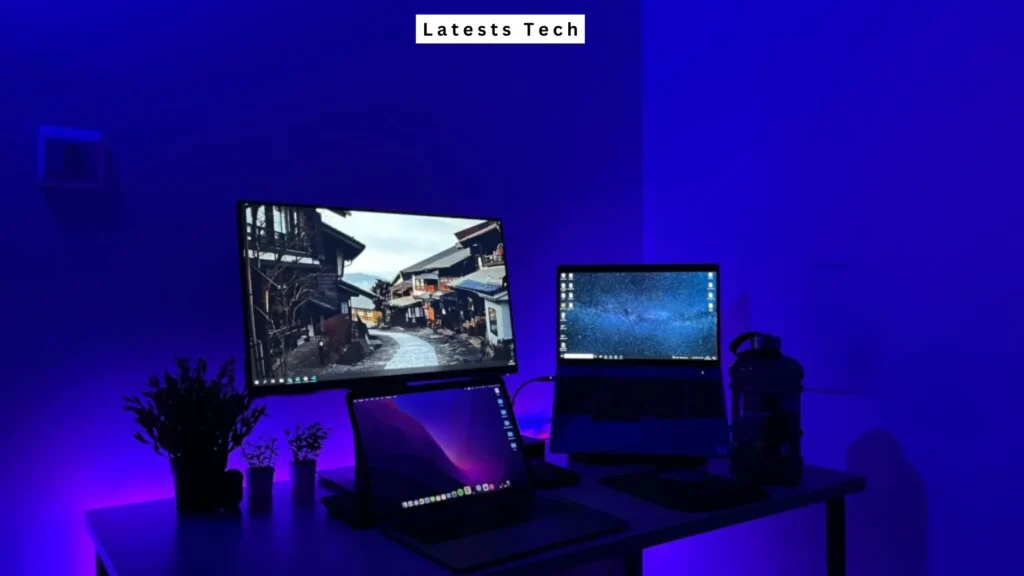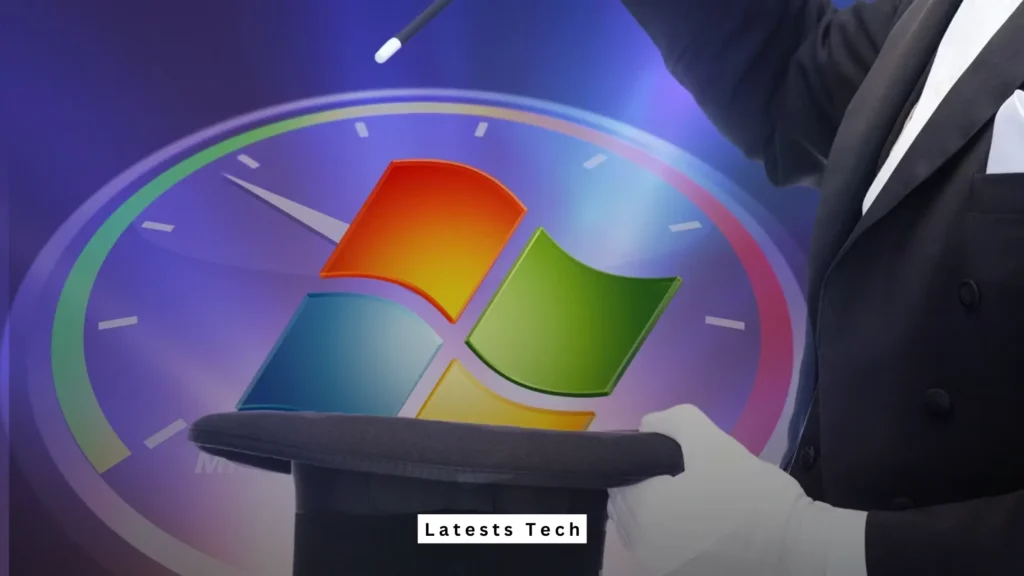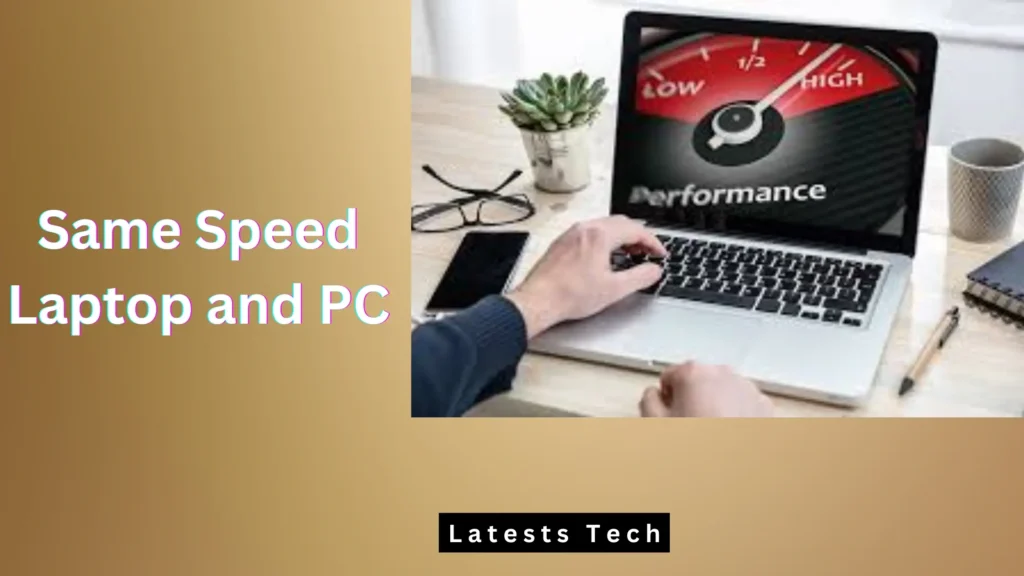Is the Same Speed in H in Laptop and PC? A Detailed Comparison? Learn about laptop and PC performance variations and the speed-altering elements and essential information needed to make a buying choice.
Introduction
Users frequently wonder if laptop and desktop PC computing devices share equivalent speed in h performance. Several processing factors including central processing unit speed and system responsiveness fall under the definition of speed in h that may differ between laptops and PCs. People think laptops and PCs function at equal performance levels but is this fact correct? This article investigates the speed factors within both devices and evaluates their performance while discussing important speed distinctions that users need to know about.
What Does “Speed in H” Mean in Laptops and PCs?
It is essential to define speed in h before investigating the speed consistency between laptops and PCs. The measurement of processor speed in hertz (Hz) represents the clock speed of a computer CPU which indicates the number of cycles the CPU executes per second. The concept of speed in h extends further than computing chip frequencies to incorporate different aspects like memory capacity storage capabilities and video processing capability. The speed characteristics between desktop PCs and laptops becomes clear when analyzing their individual components efficiently.
For a more detailed breakdown of CPU speeds and how they impact performance, check out this article on CPU performance.
Is the Same Speed in H Achievable on Both Laptops and PCs?

CPU Speed Comparison
- Different types of processors exist between laptop computers and desktop personal computers because of distinctive design restrictions.
- Desktop PCs incorporate bigger cooling systems and advanced processors which generate faster clock speeds due to their superior capabilities.
- Laptops need smaller portable designs thus they must utilize lower-powered processors that deliver slightly slower clock speeds than desktop operations.
The performance of Intel Core i9 and AMD Ryzen 9 processors when used in portable computers comes close to reaching desktop CPU speeds in specific applications. Additional information about processor comparisons can be found at Intel’s Core i9 overview.More guide Riddet
RAM and Storage: A Significant Factor in Speed
- A laptop typically comes with less random access memory and slower data storage capacity compared to personal computers based on a desktop setup.
- Faster data access speeds emerge from desktop PCs because they feature larger RAM capacities along with quicker storage solutions such as SSDs.
- A computer system requires both ample RAM capacity and a quick storage solution to function properly.
For insights into optimizing storage and choosing the right SSD, read this guide on SSD vs. HDD.
Graphics Performance: Impact on Speed in H
- Among the features in laptops are integrated graphics computers that perform at a lower capability than dedicated graphics in desktop PCs.
- When gamers and video editors use their h for these activities the GPU’s power plays a major role in their subjective speed perceptions.
You can learn more about the difference between integrated and dedicated graphics in this article from TechRadar on gaming PCs.
Heat Dissipation and Speed
- Limited space and small size of laptops restricts available cooling solutions and creates conditions for thermal throttling.
- A desktop personal computer uses better cooling systems to maintain exceptional performance at room temperature over extended durations.
| Feature | Laptop | Desktop PC |
| Processor Speed | Generally lower clock speeds | Higher clock speeds |
| RAM | Less RAM, slower speed | More RAM, faster speeds |
| Storage Type | Typically HDD or slower SSD | Faster SSDs, more storage options |
| Graphics | Integrated graphics, lower performance | Dedicated graphics, higher performance |
| Cooling | Limited cooling, thermal throttling | Superior cooling, better performance |
| Portability | Highly portable, compact design | Not portable, bulky design |
Factors Affecting Speed in H in Laptops and PCs
- CPU Architecture: The overall design of processing units directly affects operational speed by making desktop processors perform better than laptop processors. Understanding CPU architecture further requires reviewing this introductory guide to CPU architecture.
- RAM Capacity: Many laptops feature reduced RAM capacity when compared to desktop PCs thus creating limitations during multitasking activities.
- Storage Type and Speed: Desktop PCs provide users with both faster SSD storage and bigger storage space compared to HDDs.
- Cooling Systems: The superior cooling systems of desktop PCs maintain high-speed performance but laptops suffer speed throttling issues because of heat generation.
- Battery Life vs. Performance: The design trade-off between performance and battery life in laptops has an effect on sustained performance capacity.
Common Misconceptions About Speed in H Between Laptop and PC

The h of speed continues to be a subject of misconceptions regarding both desktop PCs and laptops. Let’s debunk some of these:
- Myth: Laptops Are Slower Than PCs
- Modern mobile processor technology innovations have reduced the performance differences between laptops and their key disadvantages.
- Myth: The Processor Speed is the Only Factor That Matters
- CPU speed stands as important but equal significance comes from RAM capacity alongside storage speed and GPU performance regarding system speed determination.
- Myth: All Laptops Have the Same Speed
- Because laptops provide multiple performance configuration options including different processing capabilities, RAM amounts and storage capacities performance results in diverse system performance.
Learn more about at Quora
Are Laptops Suitable for Heavy Computing Tasks?
Modern laptops surpass the power limitations of past generations since they feature processors and SSD storage as well as enough RAM. Laptops such as those with Intel i7 or i9 processors perform most extensive operations including video editing, 3D rendering and gaming with effortless ease. Better cooling systems along with more advanced components make desktop PCs continue to outperform laptops in enduring high-performance operations.
Conclusion
In conclusion, while laptops and desktop PCs might seem similar in terms of performance, there are notable differences in how they handle speed in h. The desktop PC generally has an advantage due to its larger components, better cooling, and more powerful processors. Most daily computer operations perform at similar speeds with contemporary laptops. Your selection between a PC or laptop will rest on whether you require mobility more than extensive processing capacity or expandability.For more tech tips and reviews, visit latest tech
FAQs
- Does a laptop’s processor speed match that of a desktop PC?
Laptops typically have lower clock speeds due to size and cooling limitations. However, high-end laptops can still match desktop speeds for most tasks.
- What factors affect speed in h other than CPU?
The combination of Random Access Memory capacity, Solid-state drive type selection and Graphics processing unit capabilities dependent on cooling solutions determines computer system speed.
- Can a laptop be as fast as a desktop for gaming?
High-end gaming laptops present competitive performance abilities although desktop PCs deliver superior graphics capabilities and better cooling methods for continued gaming performance.
- Are there any laptops with desktop-like performance?
Workstation and gaming laptops include strong CPUs together with dedicated GPUs and enough RAM which delivers equivalent performance to desktop computers for highly demanding applications.
- Why do desktops have better performance than laptops?
The extended cooling system and spacious design of desktops along with expandable components work together to enable improved functional capabilities.
- How does the GPU affect speed in h?
Graphics processing units operate crucially as rendering engines to deliver graphics performance and they boost tasks including gaming and video processing. Single-use GPU integration on laptops enables inferior graphics performance in relation to GPU-enabled desktop systems.
- Can laptops be upgraded to improve speed?
Some models of laptops enable users to upgrade their RAM and storage components to enhance system performance.
- Is the speed difference noticeable in daily tasks?
A person performing daily computing needs will uncover minimal performance differences between laptops and desktops. For large computing jobs desktop computers supply faster performance combined with more reliable results.
For more tech tips and reviews, visit latest tech





Thanks for sharing. I read many of your blog posts, cool, your blog is very good.
rbu326
y1iiek
10nd0t
xrud92